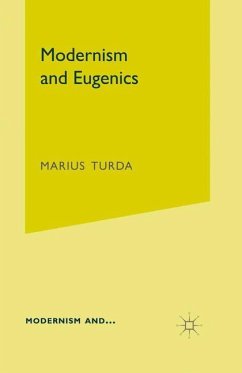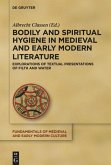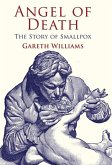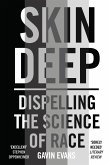Is the nation an 'imagined community' centered on culture or rather a biological community determined by heredity? Modernism and Eugenics examines this question from a bifocal perspective. On the one hand, it looks at technologies through which the individual body was re-defined eugenically by a diverse range of European scientists and politicians between 1870 and 1940; on the other, it illuminates how the national community was represented by eugenic discourses that strove to battle a perceived process of cultural decay and biological degeneration. In the wake of a renewed interest in the history of science and fascism, Modernism and Eugenics treats the history of eugenics not as distorted version of crude social Darwinism that found its culmination in the Nazi policies of genocide but as an integral part of European modernity, one in which the state and the individual embarked on an unprecedented quest to renew an idealized national community. A refreshingly provocative readingof eugenic theories of biological improvement and of their complex relationship to modern biopolitics and political ideologies like nationalism and fascism
"Modernism and Eugenics ... must be recommended to anyone who would like to discover the contents of eugenics; who aspires to understand the way in which it became a political catalyst aimed at controlling and managing the phenomenon of disability in the first decades of the twentieth century; or who simply is interested in finding out the origin of some of the ways disabled people were perceived, ways that regrettably still remain too alive in some sectors of contemporary societies." (José Martinez-Pérez, H-Net Humanities & Social Sciences Online, networks.h-net.org, June, 2016)
"Is definitely a milestone book, not only as an overview of the European discourse of eugenics, but for our understanding of eugenics as a fundamental part of European history in the twentieth century ... ." (Björn Michael Felder, Historische Zeitschrift)
"A stimulating challenge to think more precisely about the role of scientific research in the development of eugenic policies and about the place of eugenics in the broader picture of social politics.' (Nils Roll-Hansen, Metascience)
"Turda's book offers a very concise primer on the discourse of eugenics for scholars interested in the transnational character of eugenics in Europe in the turbulent years of 1870-1940 ... ." (Routledge ABES June 2011)
"Is definitely a milestone book, not only as an overview of the European discourse of eugenics, but for our understanding of eugenics as a fundamental part of European history in the twentieth century ... ." (Björn Michael Felder, Historische Zeitschrift)
"A stimulating challenge to think more precisely about the role of scientific research in the development of eugenic policies and about the place of eugenics in the broader picture of social politics.' (Nils Roll-Hansen, Metascience)
"Turda's book offers a very concise primer on the discourse of eugenics for scholars interested in the transnational character of eugenics in Europe in the turbulent years of 1870-1940 ... ." (Routledge ABES June 2011)








